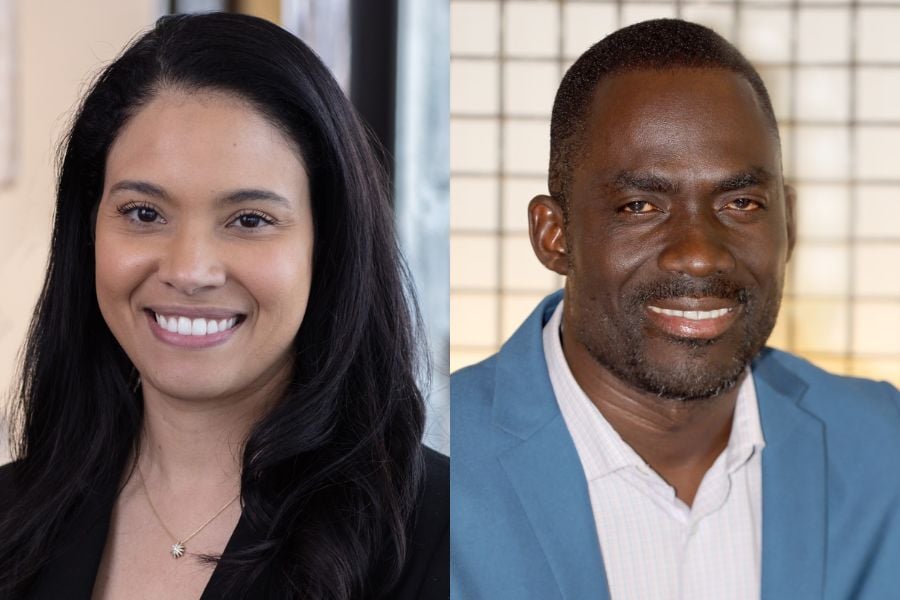

Having lived through a worldwide pandemic, rising inflation and a tense political climate, financial attitudes among Americans couldn’t be more optimistic, at least among the members of the country’s minority communities.
Merrill’s Diverse Viewpoints: Trends Reports, released Tuesday, highlights the financial challenges, concerns and successes of the African American, Hispanic and LGBTQ+ communities.
The firm surveyed more than 1,000 members of each community, with all those surveyed having more than $100,000 in investible assets.
Interestingly, 48 percent of the Black respondents are quite eager to help their fellow Americans, compared to 18 percent of the general affluent population in the US.
Among Black respondents, 31 percent are motivated to reach financial independence and 13 percent are also highly driven to start their own business, saying that they’re “motivated by ambition or desire for personal achievement, pursuing work they love and proving themselves to those who said they wouldn’t succeed,” the report said.
Members of both the African American and Hispanic communities also are confident in their wealth management planning, with 94 percent and 96 percent, respectively, saying they have a financial plan in place. That compares to the 91 percent of the general population who say they don’t have a financial plan.
Emmanuel Eliason, president and CEO at Eliason Wealth Management, feels that number is very high among minority communities and says the number should – hopefully – include a comprehensive financial plan that “takes into account all the pieces of the puzzle, not just general financial principles, investment, retirement, risk management and all that.”
“How many people have a well-thought-out, comprehensive plan in place?” he asked.
Additionally, 37 percent of African Americans said they are saving more money than planned and 26 percent are taking action to donate to more causes they’re passionate about. That may be due, Eliason says, to feeling “connected to their community, various causes and churches.”
“It’s very normal to see strong donations and contributions into those portions of their lives that they care about,” he said. “It's fairly in line with the fact of income increasing, having potential savings and investment opportunities, with new opportunities to save through all the apps available, especially the younger population.”
That’s not all to say all the survey results are positive. Like everything, there are challenges and concerns. Even though trust in financial institutions among the affluent Hispanic-Latino community significantly exceeds that of the general population across all types of firms – including large national banks and full-service brokerage firms – 16 percent cite not knowing how to find an advisor and 13 percent are concerned about finding an advisor who can relate to their culture and community.
Eliason says that African American and Hispanic attitudes are parallel, and the trust comes from financial firms being present through service to organizations and events. “If you learn to serve them well, understand their needs and not just pitch a product or some solution, but really get to know them and what is suitable for them, they are a huge referral community for business.”
As for the LGBTQ+ community, the portion of affluent community members reporting that they’ve experienced financial barriers has grown at a faster rate than among the affluent public, with a whopping 86% of LGBTQ+ respondents citing financial barriers, compared to half of the population. However, LGBTQ+ members are motivated by achieving personal success (15 percent), as well as starting a family, which is up 10 percent from the previous report in 2019.
“The LGBTQ+ community has proven itself to be highly resilient – driven by a strong desire to live authentic lives, enjoy new experiences, and create greater acceptance and opportunities for future generations,” according to the Merrill report.
Other key points include the importance all three groups place on community and culture, with 46 percent of the Hispanic community citing they feel a responsibility to help other community members succeed, compared to 19 percent of the general population.
“One of the core ways in which we believe advisors will have a leg up in serving these communities is through a deep understanding, and a long-standing commitment to understanding the financial priorities, the financial challenges and the outlook that the affluent members of these communities have,” said Jennifer Rodriguez, strategic growth and client development executive at Merrill.
The results of the report show a desire to give back to the community and to pay it forward, Rodriguez said. “There's this notion of setting up future generations for even greater success, being an example for others, and you can see and feel that pretty consistently in the [Black and African American] community.”

Relationships are key to our business but advisors are often slow to engage in specific activities designed to foster them.

Whichever path you go down, act now while you're still in control.

Pro-bitcoin professionals, however, say the cryptocurrency has ushered in change.

“LPL has evolved significantly over the last decade and still wants to scale up,” says one industry executive.

Survey findings from the Nationwide Retirement Institute offers pearls of planning wisdom from 60- to 65-year-olds, as well as insights into concerns.
Streamline your outreach with Aidentified's AI-driven solutions
This season’s market volatility: Positioning for rate relief, income growth and the AI rebound
